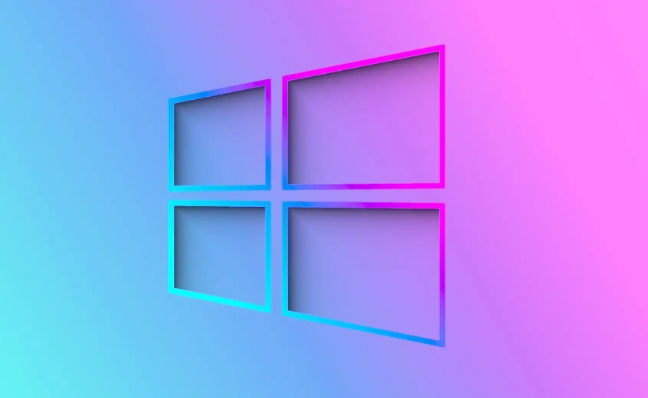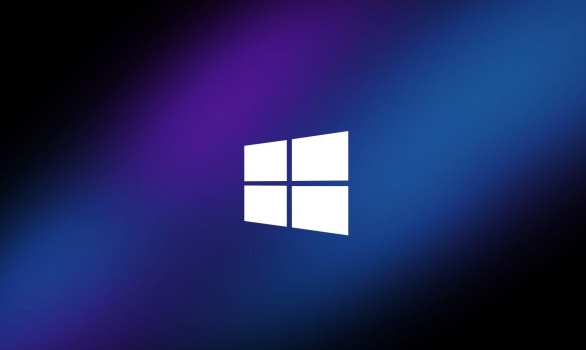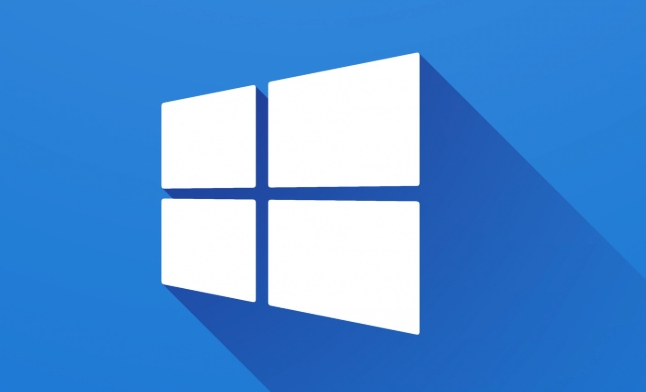The key to monitoring Windows Server performance lies in the rational use of the system's own and third-party tools. First, use the Task Manager to quickly view the real-time usage of CPU, memory and disks; second, set counters through Performance Monitor (PerfMon) to achieve long-term data recording and trend analysis; second, resource monitors can help identify resource consumption bottlenecks in specific processes; finally, deploy third-party tools such as PRTG, SolarWinds, Zabbix or Nagios to achieve centralized monitoring and automatic alarms.

Monitoring Windows Server performance is a critical step to ensure the stable operation of the server. In fact, it is not difficult, but many administrators tend to ignore some details, which leads to problems that only when they find that the resources have been in high load state for a long time.

Quick view of basic metrics using Task Manager
If you just want to quickly understand the server's current CPU, memory, or disk usage, Task Manager is the most straightforward tool. Press Ctrl Shift Esc to open Task Manager, switch to the Performance tab, you can see:

- CPU usage : More than 80% It needs attention for a while
- Memory usage : If the available memory is less than 10% for a long time, you may need to increase RAM or optimize the program.
- Disk activity : Pay special attention to the read and write speed and queue depth of the system disk (usually C disk)
This method is suitable for temporary inspection and is not suitable for long-term monitoring.
Performance Monitor (PerfMon) for detailed analysis
For more in-depth performance monitoring, Windows' own performance monitor (PerfMon) is a very powerful tool. You can use it to set a counter to record the usage of a specific resource.

Opening method:
Enter perfmon in Run and click Performance Monitor.
Common counters include:
-
\Processor(_Total)\% Processor Time: Overall CPU usage -
\Memory\Available MBytes: Remaining memory size -
\LogicalDisk(C:)\Disk Reads/secand\Disk Writes/sec: Disk IO situation -
\Network Interface(*)\Bytes Total/sec: Network traffic statistics
It is recommended to set up a logging function and save data regularly for trend analysis. You can also set an alarm to trigger notifications when certain metrics exceed thresholds.
Use Resource Monitor to troubleshoot bottlenecks
Resource Monitor can help you see more intuitively which processes are consuming resources. Opening method:
Search for Resource Monitor in the Start menu, or click Open Resource Monitor from the Performance page of Task Manager.
It has several key tags:
- CPU : Check the CPU usage of each process
- Memory : Displays the usage distribution of physical memory and paging files
- Disk : Lists disk access status for each process
- Network : Shows the network connection and transmission volume of each process
For example, when you find that a SQL Server process frequently accesses disk, you can see its specific behavior here and determine whether it is abnormal.
Third-party tools simplify management and alarm processes
Although the tools that come with Windows are already very comprehensive, if you want to implement centralized monitoring, historical data analysis, automatic alarms and other functions, you can consider deploying third-party tools, such as:
- PRTG Network Monitor : Supports SNMP and WMI, with a friendly interface
- SolarWinds Server & Application Monitor : Enterprise-level solution, powerful visualization
- Zabbix : Open source and flexible, suitable for teams with certain technical capabilities
- Nagios : Old-fashioned monitoring system, rich plug-ins
These tools can usually obtain data by installing clients or remotely collecting, and provide a web interface to facilitate viewing and configuring alert rules.
Basically these are the methods. Choosing the right tool combination in different scenarios can not only meet daily monitoring needs, but also quickly locate the root cause when problems arise.
The above is the detailed content of How to monitor performance on a Windows Server?. For more information, please follow other related articles on the PHP Chinese website!

Hot AI Tools

Undress AI Tool
Undress images for free

Undresser.AI Undress
AI-powered app for creating realistic nude photos

AI Clothes Remover
Online AI tool for removing clothes from photos.

Clothoff.io
AI clothes remover

Video Face Swap
Swap faces in any video effortlessly with our completely free AI face swap tool!

Hot Article

Hot Tools

Notepad++7.3.1
Easy-to-use and free code editor

SublimeText3 Chinese version
Chinese version, very easy to use

Zend Studio 13.0.1
Powerful PHP integrated development environment

Dreamweaver CS6
Visual web development tools

SublimeText3 Mac version
God-level code editing software (SublimeText3)
 How to Change Font Color on Desktop Icons (Windows 11)
Jul 07, 2025 pm 12:07 PM
How to Change Font Color on Desktop Icons (Windows 11)
Jul 07, 2025 pm 12:07 PM
If you're having trouble reading your desktop icons' text or simply want to personalize your desktop look, you may be looking for a way to change the font color on desktop icons in Windows 11. Unfortunately, Windows 11 doesn't offer an easy built-in
 Fixed Windows 11 Google Chrome not opening
Jul 08, 2025 pm 02:36 PM
Fixed Windows 11 Google Chrome not opening
Jul 08, 2025 pm 02:36 PM
Fixed Windows 11 Google Chrome not opening Google Chrome is the most popular browser right now, but even it sometimes requires help to open on Windows. Then follow the on-screen instructions to complete the process. After completing the above steps, launch Google Chrome again to see if it works properly now. 5. Delete Chrome User Profile If you are still having problems, it may be time to delete Chrome User Profile. This will delete all your personal information, so be sure to back up all relevant data. Typically, you delete the Chrome user profile through the browser itself. But given that you can't open it, here's another way: Turn on Windo
 How to fix second monitor not detected in Windows?
Jul 12, 2025 am 02:27 AM
How to fix second monitor not detected in Windows?
Jul 12, 2025 am 02:27 AM
When Windows cannot detect a second monitor, first check whether the physical connection is normal, including power supply, cable plug-in and interface compatibility, and try to replace the cable or adapter; secondly, update or reinstall the graphics card driver through the Device Manager, and roll back the driver version if necessary; then manually click "Detection" in the display settings to identify the monitor to confirm whether it is correctly identified by the system; finally check whether the monitor input source is switched to the corresponding interface, and confirm whether the graphics card output port connected to the cable is correct. Following the above steps to check in turn, most dual-screen recognition problems can usually be solved.
 Fixed the failure to upload files in Windows Google Chrome
Jul 08, 2025 pm 02:33 PM
Fixed the failure to upload files in Windows Google Chrome
Jul 08, 2025 pm 02:33 PM
Have problems uploading files in Google Chrome? This may be annoying, right? Whether you are attaching documents to emails, sharing images on social media, or submitting important files for work or school, a smooth file upload process is crucial. So, it can be frustrating if your file uploads continue to fail in Chrome on Windows PC. If you're not ready to give up your favorite browser, here are some tips for fixes that can't upload files on Windows Google Chrome 1. Start with Universal Repair Before we learn about any advanced troubleshooting tips, it's best to try some of the basic solutions mentioned below. Troubleshooting Internet connection issues: Internet connection
 Want to Build an Everyday Work Desktop? Get a Mini PC Instead
Jul 08, 2025 am 06:03 AM
Want to Build an Everyday Work Desktop? Get a Mini PC Instead
Jul 08, 2025 am 06:03 AM
Mini PCs have undergone
 How to clear the print queue in Windows?
Jul 11, 2025 am 02:19 AM
How to clear the print queue in Windows?
Jul 11, 2025 am 02:19 AM
When encountering the problem of printing task stuck, clearing the print queue and restarting the PrintSpooler service is an effective solution. First, open the "Device and Printer" interface to find the corresponding printer, right-click the task and select "Cancel" to clear a single task, or click "Cancel all documents" to clear the queue at one time; if the queue is inaccessible, press Win R to enter services.msc to open the service list, find "PrintSpooler" and stop it before starting the service. If necessary, you can manually delete the residual files under the C:\Windows\System32\spool\PRINTERS path to completely solve the problem.
 How to show file extensions in Windows 11 File Explorer?
Jul 08, 2025 am 02:40 AM
How to show file extensions in Windows 11 File Explorer?
Jul 08, 2025 am 02:40 AM
To display file extensions in Windows 11 File Explorer, you can follow the following steps: 1. Open any folder; 2. Click the "View" tab in the top menu bar; 3. Click the "Options" button in the upper right corner; 4. Switch to the "View" tab; 5. Uncheck "Hide extensions for known file types"; 6. Click "OK" to save settings. This setting helps identify file types, improve development efficiency, and troubleshoot problems. If you just want to view the extension temporarily, you can right-click the file and select "Rename" and press the Esc key to exit, and the system settings will not be changed.







